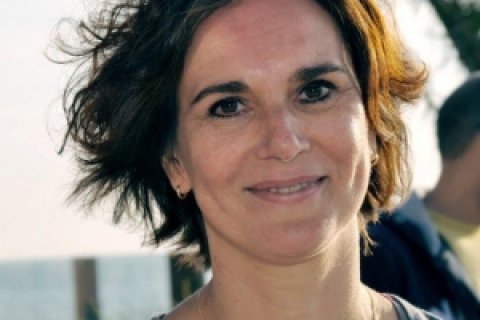Assistant Professor Inge van der Valk
Divorce often has severe consequences. But what is best for a child, both during and after a divorce? Dr Inge van der Valk is attempting to answer this very question. She is an Assistant Professor in the Youth and Family research group at the Faculty of Social and Behavioural Sciences; since 1999, she has focused on the correlation between parental conflict, divorce, and the functioning of children and young people.

Van der Valk has conducted long-term research into how children are affected by their parents’ divorce, for instance, focusing on the differences between divorces with a high or low degree of parental conflict. She has also studied the effect of the KIES prevention programme for children of divorce. This study (which was recognised by ZonMw) revealed that KIES can be helpful to children in the aftermath of a divorce.
Own social circle
Approximately 70,000 children living at home in the Netherlands are affected by divorce each year. ‘It is not only something I deal with in my work, it’s something I encounter in my social circle from time to time as well,’ says Van der Valk. ‘In those cases, as in my work, I try to take a nuanced view and avoid passing judgement. What is important is not my opinion of divorce, but what my research teaches me about situations in which a divorce proceeds as smoothly as possible.’
Divorce involving children is a complicated subject, Van der Valk indicates. ‘First, it involves a great many factors such as the characteristics of the parents and children. It also concerns the quality of the child-rearing and the interpersonal relationships, for instance, plus the legislature on divorce. The topic is a sensitive one as well: children may be adversely affected. Many times, parents have no idea how complicated parenting after divorce can be. As there is so much left to study in this area, both parents and children stand to gain much through increased knowledge with practical applications.’
Co-parenting
In the Netherlands, a growing number of children live in co-parenting families after a divorce. Co-parenting after divorce, in which children divide their time more or less equally between the mother and father, can help them to maintain a close relationship with both parents. International research shows that this type of living situation is the least stressful for children. Yet even in such an arrangement, the child will still be confronted with a great many changes, Van der Valk says. ‘Examples of changes include going back and forth between two houses, or dealing with one parent and then the other depending on whose turn it is. When parents have difficulty coordinating the arrangement, and when they are frequently in conflict, it will most certainly result in negative consequences for the children.’
''When parents have difficulty coordinating the arrangement, it mostly results in negative consequences for the children.''
The many changes following a divorce can take their toll. ‘After a while, more than half of parents find a new partner, which often means that children will be dealing with half- or stepsiblings as well. This situation can lead to practical concerns, but also to questions such as: “Who am I? Where do I belong?” We still don’t know enough about what it’s like for children to live in two houses and two families. How do children experience constantly switching “homes” and, most importantly, how can we figure out which factors contribute to the optimum well-being of children in those homes?’
Working with other disciplines
Through this theme, Van der Valk hopes to establish a more effective connection with other disciplines. ‘Cooperation with the legal profession seems fairly obvious, since our disciplines can complement one another quite nicely. Especially in contentious divorce cases, it’s important to work together and identify the best possible approach. I’m curious about the collaboration with urban geographers as well, which attempts to find out what it’s like for children to grow up in different neighbourhoods. I also think it’s fantastic that we are partnering with game research in order to develop a concrete, usable project for children of divorce.’
Inge van der Valk teaches in the Pedagogical Sciences Bachelor’s and Master’s programmes, as well as in the Research Master’s Development and Socialisation in Childhood and Adolescence (DASCA). She is also Chair of the Board of Examiners for the Bachelor’s in Pedagogy. In addition to education and research, she is closely involved with professional practice as well. Examples include the SOS project to support children of divorce, various projects centred on divorce and children, and the revision of the ‘Directive on divorce and problems among young people’.

